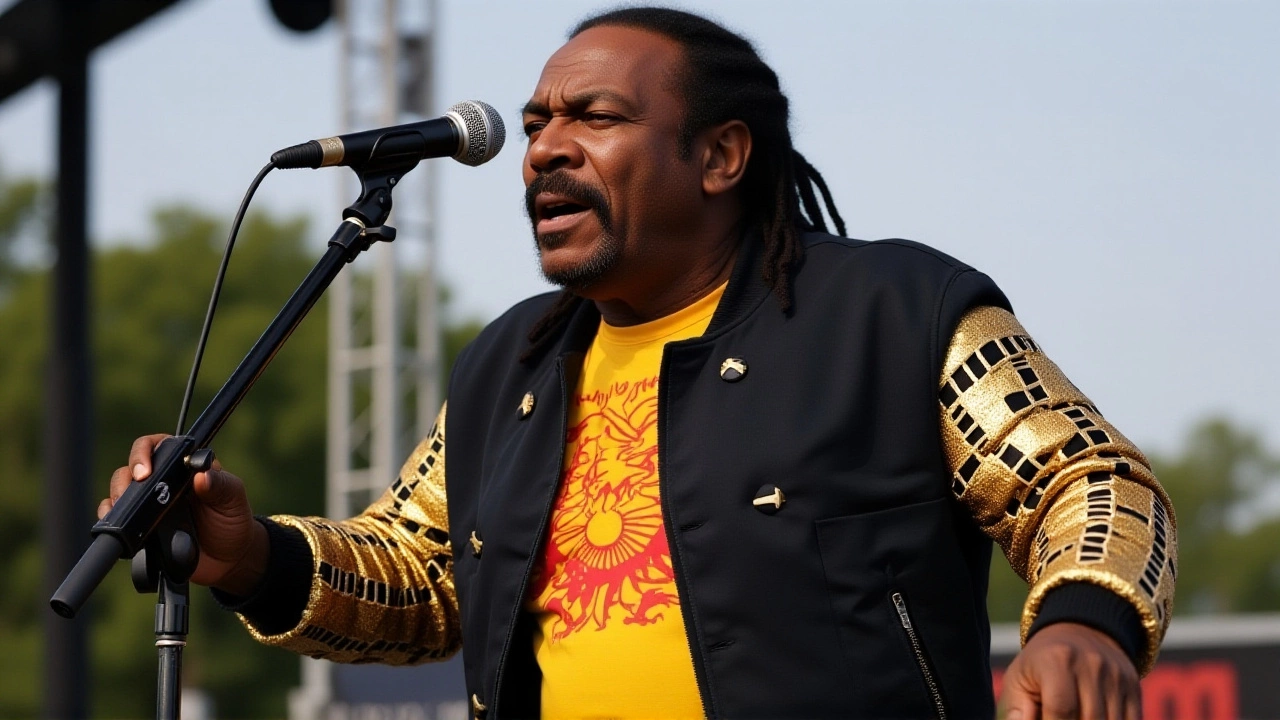Jimmy Cliff, the voice that carried Jamaica’s soul across the globe, died at 1:00 a.m. on Sunday, November 24, 2025, in Kingston, Jamaica, at age 81. The cause, confirmed by his wife Latifa Chambers in a heartfelt Instagram post, was a seizure followed by pneumonia. His passing marks the end of a six-decade musical journey that turned reggae from a local rhythm into a worldwide language of resistance, hope, and joy.
The Man Behind the Music
Born James Chambers in the rural village of Somerton, Jamaica, Cliff was discovered at 14 by producer Leslie Kong. By 1962 — the same year Jamaica gained independence — he was already recording. His voice, warm and weathered like old wood, carried the weight of struggle and the lightness of faith. He didn’t just sing reggae; he embodied it. Songs like "Many Rivers to Cross" weren’t just hits — they were survival manuals for the downtrodden. "I Can See Clearly Now" became an anthem of renewal, played at graduations, funerals, and protests from Brooklyn to Berlin.
The Film That Changed Everything
But it was the 1972 film 'The Harder They Come'Jamaica that turned him into a global icon. Cliff starred as Ivanhoe Martin, a poor musician turned outlaw, and performed the title track — a raw, urgent cry against systemic injustice. The film, shot on a shoestring budget in the backstreets of Kingston, became the first reggae-powered international hit. Critics called it a "cultural earthquake." For the first time, audiences outside Jamaica saw not just music, but a whole world — the sound of a people speaking truth to power, one beat at a time.
A National Treasure Honored
By the time he was inducted into the Rock and Roll Hall of Fame in 2010 — alongside legends like Elvis and Chuck Berry — Cliff had already earned Jamaica’s highest civilian honor, the Order of Merit. Prime Minister Andrew Holness called him "a true cultural giant whose music carried the heart of our nation to the world." The statement, released Monday morning, was more than a tribute — it was a national reckoning. "He told our story with honesty and soul," Holness said. "His music lifted people through hard times."
Cliff’s impact wasn’t confined to stages or screens. Public affairs commentator GRI noted on Parro 106 that Cliff’s lyrics subtly fueled social movements, from anti-colonial protests in the 1960s to Black Lives Matter rallies decades later. His songs were sung in protest marches from London to Lagos. He didn’t just perform for the world — he taught it how to listen.
Legacy in Sound and Spirit
His final studio album, Refugees, released in 2022, was a quiet masterpiece. At 74, he sang about displacement, dignity, and the long road home — themes that echoed his own journey from a tiny Jamaican village to the world stage. He never chased trends. He didn’t need to. His truth was timeless.
His net worth, estimated at $12 million by the Economic Times, was never the point. What mattered was the connection. "Your support was his strength," Latifa wrote. And it was true. Fans didn’t just buy his records — they carried them like talismans. At his concerts, strangers hugged each other after "Many Rivers to Cross." Children in Tokyo knew every word to "The Harder They Come."
What Comes Next
Official memorial services are expected to be held in Kingston within the next seven days, as announced by the Office of the Prime Minister. There will be no private funeral — not for a man who belonged to everyone. The Jamaican government plans a national day of remembrance, with schools, radio stations, and public spaces playing his music throughout the day. A statue is already in the works near National Stadium.
His children, Lilty and Aken Chambers, asked for privacy — but the world won’t let him go quietly. His music will keep playing. On buses in Kingston. In yoga studios in Portland. On vinyl spins in Berlin basements. Jimmy Cliff didn’t just make songs — he built a cathedral of sound. And it’s still standing.
Frequently Asked Questions
How did Jimmy Cliff help popularize reggae music globally?
Cliff’s starring role in the 1972 film The Harder They Come was the breakthrough moment. The movie’s soundtrack, featuring his hits like the title track and "I Can See Clearly Now," became the first reggae album to chart internationally. Before Cliff, reggae was largely unknown outside Jamaica. His performance gave audiences a human face to the music — and the film’s gritty realism made the genre feel urgent, authentic, and universal.
What awards did Jimmy Cliff receive during his career?
Cliff won two Grammy Awards — one in 1993 for Best Reggae Album (The Power and the Glory) and another in 2004 for Best Reggae Album (Rebirth). He was inducted into the Rock and Roll Hall of Fame in 2010 and received Jamaica’s Order of Merit in 1984, the nation’s highest honor for artistic achievement. He was one of only three reggae artists ever to receive the Order, alongside Bob Marley and Peter Tosh.
How did his early life shape his music?
Growing up poor in rural Somerton, Cliff worked as a laborer and street vendor before being discovered at 14. He saw firsthand the struggles of working-class Jamaicans — police brutality, economic neglect, systemic inequality. These weren’t abstract themes in his songs; they were lived experiences. That authenticity gave his music its power. "Many Rivers to Cross," for example, wasn’t just a ballad — it was his own biography in three minutes.
What was the cultural significance of 'The Harder They Come'?
The film was Jamaica’s first international box office success and the first movie to center Black Caribbean life without exoticism or stereotype. It showed a society in tension — between tradition and modernity, between the oppressed and the powerful. Cliff’s performance as Ivanhoe Martin, a man pushed to rebellion by injustice, made him a symbol of resistance. The film’s success opened doors for reggae artists worldwide and proved that Jamaican stories could resonate globally — without translation.
Why was Jimmy Cliff considered a cultural ambassador for Jamaica?
Before Cliff, few outside the Caribbean knew reggae or understood Jamaica’s cultural identity. He carried the island’s spirit to Europe, North America, and beyond — not through politics, but through song. He performed at the UN, met with heads of state, and was invited to represent Jamaica at global cultural forums. His voice became synonymous with the island’s resilience, creativity, and spiritual depth. Even Bob Marley once said, "Jimmy showed us the way."
How will his legacy continue after his death?
Jamaica’s Ministry of Culture has announced plans to name a national music archive after him and launch a youth reggae scholarship program. Schools across the island will incorporate his lyrics into history and music curricula. His family is working with the National Library to digitize his unreleased recordings. And every November 24, starting next year, Jamaica will observe "Jimmy Cliff Day," with free concerts, poetry readings, and community sing-alongs — because his music, like his spirit, was never meant to be silent.

